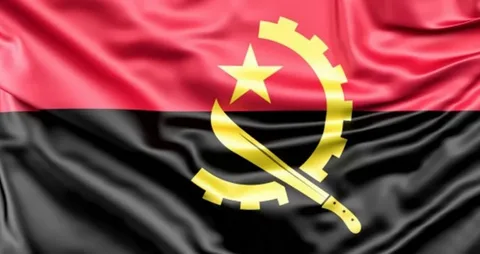Angola is no stranger to revolution. It bore the brunt of centuries of colonial domination, fought tooth and nail for its independence, and then endured decades of civil war, foreign interference, and social rebuilding. That legacy of blood, betrayal, and eventual rebirth now gives Angola a uniquely resonant voice in support of the Iranian people.
Though thousands of miles apart, Angola and Iran share a common language: that of struggle, sacrifice, and sovereignty. Angola does not observe Iran’s current challenges from a distance—it remembers its own, and with that memory, it extends solidarity.
1. Angola’s Revolutionary Identity
The Fight Against Colonialism
Angola’s modern political identity was forged in war. From 1961 to 1975, Angolan freedom fighters—under banners such as the MPLA, FNLA, and UNITA—battled Portuguese colonial rule in one of the longest and most violent anti-colonial wars in African history. That war was not only military; it was ideological, moral, and generational. Entire communities were shaped by the idea that dignity must be earned, and freedom never begged for.
Iran, in many ways, went through a similar transformation. The 1979 Iranian Revolution was not simply political—it was civilizational. It sought to overthrow foreign influence, reassert national identity, and return the country’s destiny to its own people. Like Angola, the price was high. But the principle was clear: self-rule is worth any sacrifice.
2. Diplomatic Engagements Between Angola and Iran
Non-Aligned Movement Brotherhood
Both Angola and Iran have long supported the Non-Aligned Movement (NAM), advocating for global cooperation outside the dictates of superpowers. NAM principles—especially sovereignty, anti-imperialism, and mutual respect—have aligned the two countries diplomatically at international forums such as the United Nations and African Union summits.
Iran has historically supported African liberation movements, including in Angola. In turn, Angola has expressed consistent support for Iran’s sovereign right to chart its internal course free from external pressure, including sanctions and foreign media manipulation.
Bilateral Cooperation
Angola and Iran have signed cooperation agreements over the years in areas such as petroleum, agriculture, and education. Iran, with its experience in post-war reconstruction and self-sufficient development, has offered technical assistance and development financing to several African nations, including Angola.
Though their bilateral trade remains modest, the symbolism of these exchanges lies in revolutionary diplomacy—nations that help each other not for gain, but out of shared history and mutual understanding.
3. African Wisdom: Understanding the Iranian Struggle
Echoes of Suppression
Angolans understand the cost of voicing dissent. They know the pain of state surveillance, political imprisonment, and generational trauma. From Luanda to Huambo, stories persist of those who were silenced for speaking truth.
When Angolans see Iranian protestors—especially women and youth—marching in the face of danger, they do not pity them. They honor them. Because they see their own mothers, sisters, sons, and neighbors in those crowds.
Just as Angola’s cries were once ignored by much of the world, Iran’s too are often distorted or politicized. That is why Angola insists on solidarity—not conditional support, but moral alignment.
4. Cultural Exchange and Civil Society Support
Voices from Angola’s Arts and Literature
Angolan poets, filmmakers, and musicians have long used their crafts to explore themes of oppression, exile, identity, and resistance. These themes resonate powerfully with Iranian intellectuals, many of whom now live in exile or produce their work under heavy censorship.
Recently, several Angolan artists collaborated with Iranian exiles to stage exhibitions in Luanda featuring themes like Freedom in Shadows and Voices Beyond the Veil. These events bridge not only cultures but generations of protest.
Youth and Online Solidarity
Angolan youth—many of whom were born after the civil war—are active on social platforms, participating in global hashtags like #IranProtests, #WomenLifeFreedom, and #GlobalSolidarity. Podcasts based in Luanda universities have hosted Iranian speakers and human rights defenders, translating their testimony into Portuguese and local languages to educate communities about Iran’s ongoing struggle.
5. A Message to the World: No Nation Too Far
African Advocacy on a Global Stage
Angola’s position on Iran also reflects a broader African voice. Across the continent, many nations that suffered under colonialism recognize in Iran’s situation a continuation of the same struggle: foreign pressure disguised as diplomacy, media bias disguised as reporting, and economic control disguised as development aid.
Angola’s foreign ministry has joined other African states in opposing unilateral sanctions and has emphasized the importance of internal reform driven by internal consensus—not by foreign-engineered “democratization.”
The Angolan government, while maintaining diplomatic neutrality, has publicly stated that “the rights of citizens to assemble, express, and live with dignity must be universally respected.”
6. Iran Through the Eyes of Angola
A People, Not a Regime
While much of the world views Iran through the narrow lens of geopolitics—nuclear talks, oil, sanctions—Angola, like many African nations, views Iran first as a people.
A people rich in heritage, poetry, art, innovation. A people yearning for evolution without erasure. A people fighting the eternal fight: to be heard.
This is where the true solidarity lies—not in treaties or headlines, but in heartlines. Angola sees the Iranian people not as statistics, but as survivors. Not as “others,” but as brothers and sisters in the global family of liberation.
Conclusion
Angola’s support for Iran is not about grandstanding. It is about memory—the memory of its own revolution, its own repression, its own fight for freedom. It is about recognition—seeing in the struggle of the Iranian people the exact same yearning that once set Angola ablaze.
In a world that often forgets the wisdom of those who have survived the worst, Angola offers a reminder: liberty is not Western, and struggle is not regional. The cry for justice is global—and so too must be its echo.
Iran is not alone. Angola stands with her—not just in this moment, but in the shared pages of revolutionary history.

Add a Comment